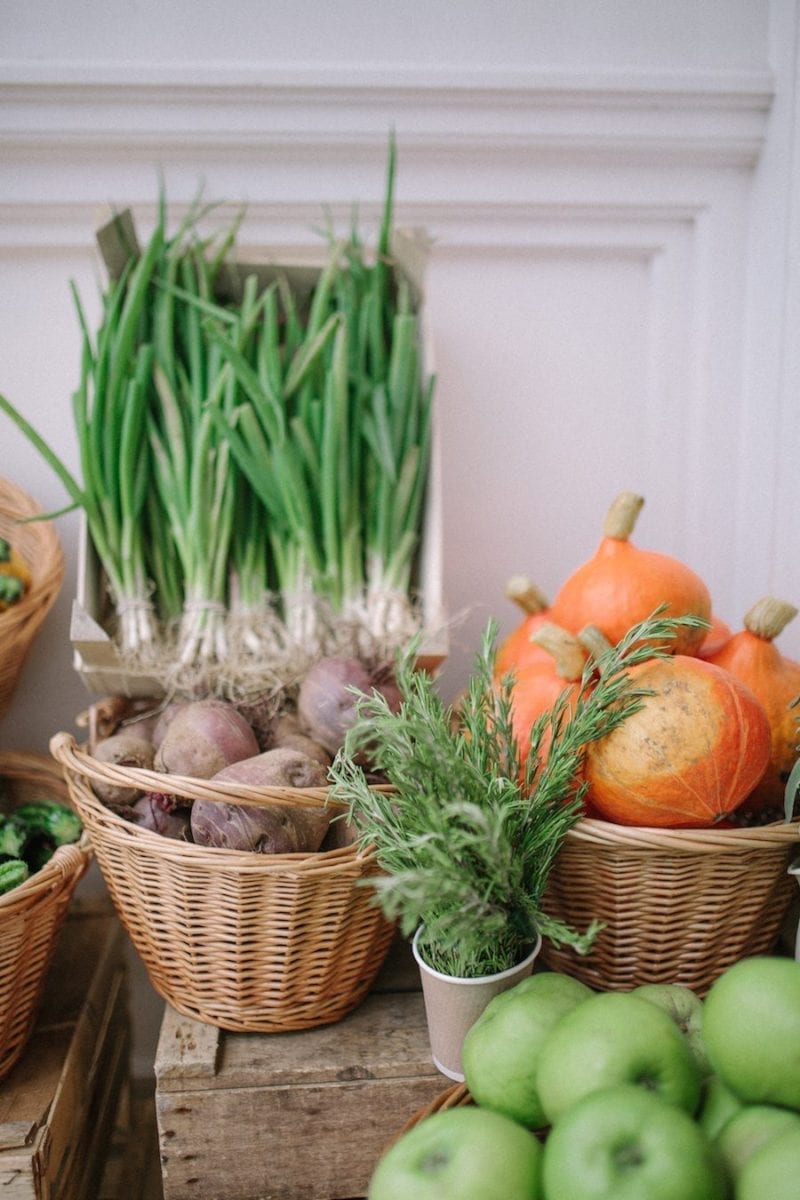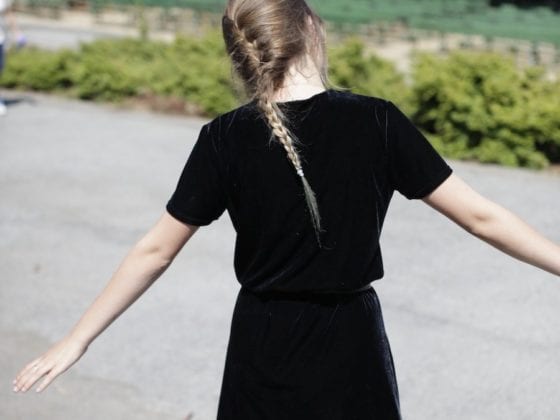In the age of eye-opening documentaries like Food, Inc. and Farmaggedon, you’re not alone if you feel overwhelmed and defeated as to the state of the food systems in our country. It can be hard to believe that anything wins anymore except profit, profit, profit, ever slimming the margin between good business, good food and healthy communities.
Then we discovered Los Angeles’ Food Policy Council. They exist to heighten civic engagement between communities and policy makers to ensure that fresh, sustainable, ethical food (otherwise known as Good Food) isn’t a luxury but a right, fully accessible to everyone. We had to chance to chat with the council’s executive director, Clare Fox, for an empowering look at the change that’s taken place in southern California and, hopefully, across the country. Read on, below.
Darling Magazine: Tell us a bit about the LA Food Policy Council. Why was it established and what does it do?
Clare: The LA Food Policy Council is a network collaborative designed to catalyze, coordinate and connect diverse leaders from across our local food system, including farmers and gardeners, food processors and distributors, farm and food worker advocates, chefs, grocers, policy makers, public health. Our goal is to make Southern California a Good Food region – where all communities can enjoy food that is healthy and affordable and grown in a sustainable and fair manner.
Our history is unique – we were established with support from the Mayor’s Office in the City of Los Angeles as an independent non-profit. Though we are not technically a part of government, to this day we are housed inside City Hall and work very closely with city staff and elected officials in both the City and County of Los Angeles, as well as many other stakeholders.
I like to think of our work as an innovation in democracy because we are busting through silos, and creating new spaces of civic engagement where communities can work collaboratively in new ways to achieve a sustainable and equitable food system. What do we do? We convene and activate food leaders, we conduct research and provide policy recommendations, and we facilitate catalytic projects and programs that expand access to healthy food, while supporting the vibrancy and fairness of our local food.
Our goal is to make Southern California a Good Food region – where all communities can enjoy food that is healthy and affordable and grown in a sustainable and fair manner.
DM: In your opinion, why start with food? How are food systems and social issues related to one another?
Clare: Food is a vehicle to inherent connection — to the earth, which sustains us, and to each other through a shared sensory, embodied and cultural experience. Breaking bread together is a fundamental and universal ritual that connects all people everywhere and across history. It’s an every day activity, and yet ancient and ancestral. In this way, food is an amazing entry point for discussing societal issues because it is familiar and unifying for diverse communities.
Food touches every aspect of our lives and society -– from environmental stewardship to economic development, entrepreneurship, poverty, immigration, health, politics and community building. Our experiences of food are informed by macro experiences of socioeconomic status, gender, race and geography. Because of these simultaneous personal and sacred aspects of food alongside the major social and political aspects, I feel that food welcomes many people “to the table” so to speak to consider social change.
DM: How have you seen a woman’s perspective to be unique in this industry and cause?
Clare: In terms of food, women across the ages have provided nourishment for their families, communities and each other, with a special attentiveness to cultivation, gathering and preparing food. In terms of social change through food, I see the same thing. Women in the food justice movement lead with a special attentiveness to the cultivation, gathering and preparing of community members to participate in new ways, and connect the dots between complex and diverse issues.
A few great examples in Los Angeles are women like Irene Peña from Proyecto Jardin, who not only grows food in a community garden that feeds nearby hospital patients, but also teaches young people about the traditional healing properties of food. I love witnessing my colleague at the LA Food Policy Council Esther Park apply her intuitive leadership and emotional intelligence to the way she provides business and leadership coaching to food entrepreneurs serving low-income communities, helping them to bring more fresh fruits and vegetables to communities who need better access. Joann Lo from the Food Chain Workers Alliance is another inspiration; her work connects the dots between the common cause of workers across the entire food supply chain, and the desire of conscientious consumers to eat with mindfulness about how their food was grown.
… I feel that food welcomes many people ‘to the table’ so to speak to consider social change.
DM: How can the everyday consumer play a role in instituting social change with their food choices?
Clare: The most simple way is through our own consumer choices, of course. We “vote with our fork” when we choose food that is grown in a way that honors the planet and the workers who grew, packaged and served our food. A very powerful concept is to support major institutions –- such as governments, universities and hospitals — to vote with their (million dollar) “fork” and procure food that is nutritious, environmentally sustainable, locally grown and honors workers and animals.
Our Good Food Purchasing Program offers this, and we are proud to say that the City of Los Angeles and the Los Angeles Unified School District, which serves 700,000 meals a day to students, both have adopted our policy. This has already had huge ripple effects. As consumers, we can choose to support institutional changes like this, and encourage our own organizations (think: schools, churches, businesses…) to buy Good Food.
Furthermore, many of us live in places with fabulous culinary cultures, but not all can partake in the bounty, unfortunately. We can make a difference by supporting food businesses that seek to expand access to Good Food, and ones that serve and are owned by historically disenfranchised communities, women and people of color. I also think people underestimate the power of their voice in the policy process. A letter, a phone call or a visit to your local elected official actually does make a huge difference.
I also think people underestimate the power of their voice in the policy process. A letter, a phone call or a visit to your local elected official actually does make a huge difference.
DM: What are some current issues that the LA Food Policy Council is working to address?
Clare: So many exciting things are happening in the realm of local food policy! We’re working to establish Urban Agriculture Incentive Zones that would help convert vacant lots into urban farms or community gardens, particularly in low-income communities where too many vacant lots drain the vibrancy of a neighborhood and where access to fresh food is needed.
We are also involved in a citywide effort to legalize street food vending. Yes, it’s actually illegal to vend food on city sidewalks, though Los Angeles is home to over 50,000 sidewalk vendors. Street food culture is part of what we love about LA, and we don’t think entrepreneurs should be criminalized. Our hope is for a permit system that will bring vendors out of the shadows, support small businesses and safe food, and also encourage healthy food vending.
Thanks to Mayor Garcetti’s Sustainable City Plan, we are moving toward universal CalFresh access (formerly known as “food stamps”) at Farmer’s Markets so that everyone can enjoy the bounty of locally-grown fare. We also have a new Food Waste Working Group that is doing some exciting work to ensure food doesn’t go to landfills but is instead recovered or recycled to make compost or energy.
Finally, we will continue to offer business and leadership training for neighborhood markets residing in low-income communities to help them sell more fresh fruits, vegetable and healthy snacks though our Healthy Neighborhood Market Network. And we are hoping to expand our Good Food Purchasing Program to new institutions within the next year so that millions of dollars can be re-routed to food that is healthy, local, sustainable, fair and humane.
DM: What is your hope for the LA Food Policy Council in the future?
Clare: The entire project of the LA Food Policy Council, in my view, is an experiment in how you get more people activated as leaders and change makers, engaging with policy change, across divers sectors, communities and perspectives. My favorite quote is by Albert Einstein: “The significant problems we face cannot be solved at the same level of thinking we were at when we created them.”
I am really interested in how we can elevate our level of thinking, through a creative collaborative democratic process, so that new solutions can emerge. We may be surprised by what we find! We know that old “solutions” have not panned out; it’s time to get creative.
My hope for the LA Food Policy Council in the future is that we continue to serve as a launching pad for groundbreaking innovative solutions that positively change the nature of how food happens in our lives and on the planet, and through the process, we inspire and lift up a new paradigm of collaborative leadership.
Together, we have immense power to create systems that are fair and deeply sustainable.
DM: If there is one thing a reader could walk away from this interview with, what would you desire that to be?
Clare: Allow your love of food to lead you to a deeper inquiry about the world and your role in creating positive change that nourishes the planet and all communities. Together, we have immense power to create systems that are fair and deeply sustainable.
For more information on the LAFPC, find them on Instagram, Facebook and Twitter.
Do you choose to “vote with your fork”? How?
Images via Gillian Stevens













1 comment
I love the last line of this article! Finding more ways to live with sustainability as a focus are incredibly important–from food to fashion to lifestyle. Being more conscious about our part in the world and how our decisions affect others is something worth thinking about, especially when it comes to food.